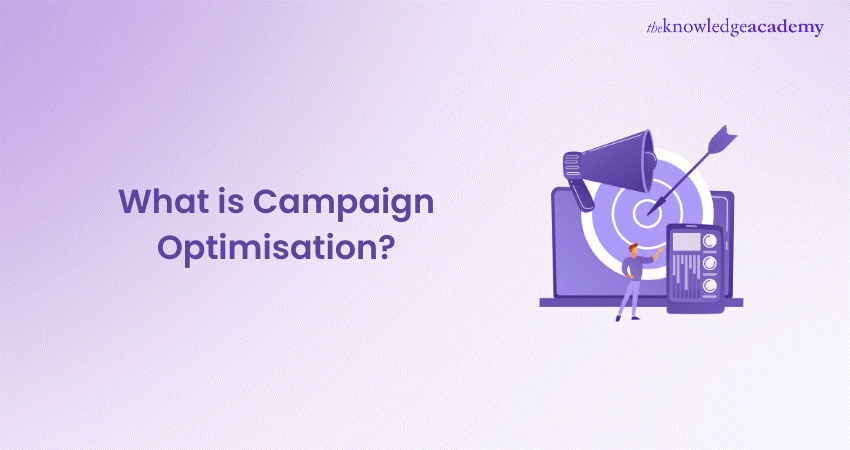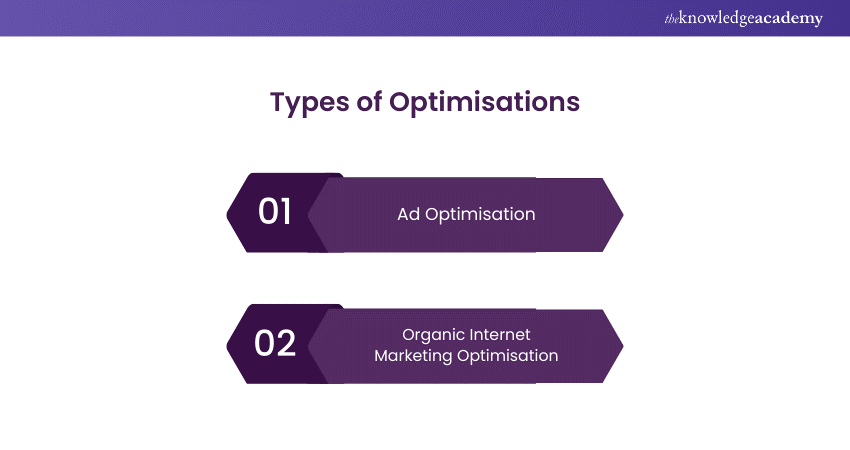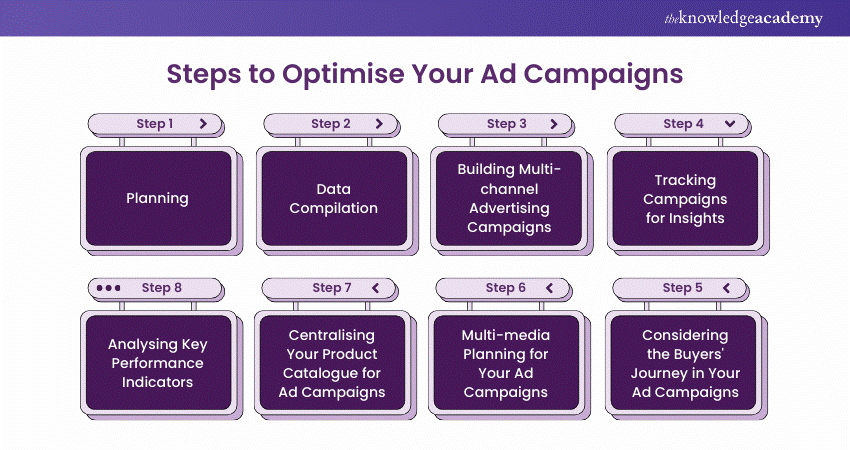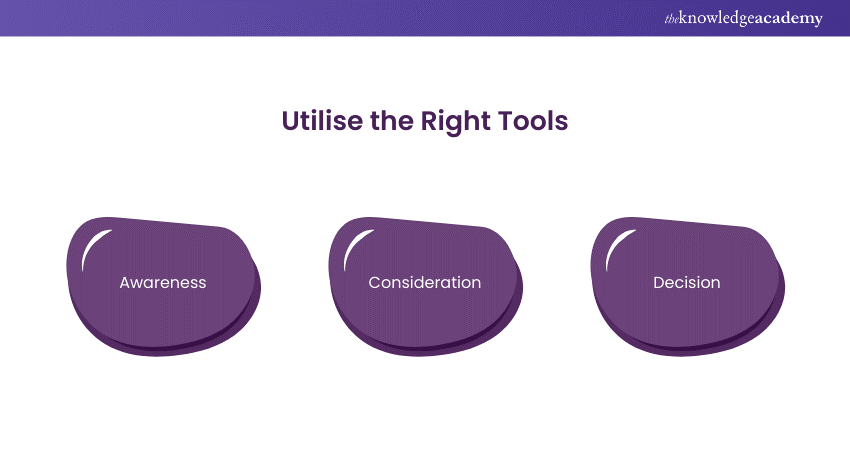We may not have the course you’re looking for. If you enquire or give us a call on 01344203999 and speak to our training experts, we may still be able to help with your training requirements.
We ensure quality, budget-alignment, and timely delivery by our expert instructors.

The key to successful marketing strategies lies in Campaign Optimisation, which is vital in a world where each click, impression, and interaction counts. Perfecting your campaigns isn’t just about running ads; it’s about making them smarter, more efficient, and closely aligned with your objectives. This precision is crucial whether your goal is to enhance brand recognition, boost conversions, or maximise ROI.
By regularly refining and adjusting your campaigns, you can have competitive edge and ensure successful marketing outcomes. In this blog, we’ll explore Campaign Optimisation and how to elevate your campaigns' efficiency, focus, and effectiveness for overall success.
Table of Contents
1) What is Campaign Optimisation?
2) The Importance of Campaign Optimisation
3) Types of Optimisations
4) Steps to Optimise Your Ad Campaigns
5) Advantages of Campaign Optimisation
6) Strategies for Campaign Optimisation
7) Conclusion
What Is Campaign Optimisation?
Campaign Optimisation is a strategy marketers use to improve the efficiency of advertising or marketing initiatives. It enables advertisers to gain optimal outcomes. Campaigns can be tailored for objectives like driving traffic to websites, increasing engagement, growing reach, or boosting conversions. For example, if you want to boost website traffic, the publisher will try to increase clicks while minimising expenses.
Platforms including Facebook and Google Ads permits advertisers to activate Optimisation and select the specific goal they wish to accomplish when starting an advertising campaign. Certain companies and organisations have their own optimisation technologies and procedures. These tools additionally enhance the performance of campaigns on these platforms.
The Importance of Campaign Optimisation
Optimising Campaigns is vital as it increases your marketing return on investment (ROI) by making sure campaigns are as efficient as they can be. Maximising your marketing budget can make or break your success in a challenging market.
Furthermore, Optimising allows for flexibility, facilitating rapid adjustment to market fluctuations and changing consumer preferences. It also helps in allocating resources, allowing you to focus your budget on the most effective strategies and guaranteeing efficient and effective use of resources.
Types of Optimisations
There are two main categories of Campaign Optimisation: Ad Optimisation and Organic Internet Marketing Optimisation. Every kind concentrate on various marketing plan elements, yet both are crucial for a comprehensive strategy.

1) Ad Optimisation
Improving Ad performance through optimisation means enhancing paid advertising strategies for improved outcomes. This involves improving ad designs, audience targeting, bidding tactics, and where the ads are placed. The aim is to ensure that your advertisements target the appropriate audience, drive clicks, and turn leads into customers.
Important elements of Ad Optimisation involve testing various versions of ads through A/B testing, modifying bids according to results, and enhancing audience targeting to connect with the most suitable potential customers. You can raise the performance of your ads and make the most of your ad budget by regularly monitoring and adjusting them.
2) Organic Internet Marketing Optimisation
Organic Internet Marketing Optimisation aims to enhance the visibility and efficiency of your unpaid marketing activities, which include SEO, content marketing, social media engagement, and email marketing.
Organic Optimisation aims to draw in and interact with your desired audience without depending on paid advertisements. Developing your website, content, and social media presence can help you boost organic traffic, enhance brand recognition, and cultivate lasting connections with your followers.
Gain proficiency in analysing data with our Google Analytics Certification – Sign up now!
Steps to Optimise Your Ad Campaigns
Optimise your Ad campaign using a strategic approach. Let’s see some of the key steps to follow to enhance your campaign and drive better results.

1) Planning
Before planning a campaign, carefully research your offer and analyse the competition. This assists in developing a precise optimisation plan and prevents errors by establishing your campaigns accurately. Always keep in mind that thorough planning is vital for the success of any campaign.
2) Data Compilation
Collect enough data before initiating optimisation. Allow your campaign to continue running while monitoring the collected data. Optimising too rapidly may result in overlooking opportunities and utilising unreliable traffic sources.
3) Building Multi-channel Advertising Campaigns
Customers engage with businesses through multiple channels. Utilising multiple channels in your campaign enhances the likelihood of both conversions and sales. Integrating various channels into a single strategy saves time and money, enhances the customer experience, and widens your audience. To enhance a multi-channel campaign:
1) Comprehend the preferred platforms of the audience you are trying to reach
2) Establish specific objectives for the campaign
3) Select specific metrics to monitor the advancement
4) Develop uniform communication that is specific to every platform
5) Utilise resources such as Google Analytics for monitoring attribution and efficiency
Creating and perfecting a multi-channel strategy necessitates thorough preparation, which is crucial for maintaining a competitive edge.
4) Tracking Campaigns for Insights
Establish goals and track the progress of your campaign to improve efficiency. Utilise tools to understand how well your campaign is performing quickly. Monitoring essential metrics assists in comprehending:
1) Keyword Performance: Modify target keywords if they fail to bring in relevant traffic
2) Preferred Content Types and Media: Utilise A/B testing to determine which content types and media resonate most with users for better engagement and conversion rates.
3) Audience Actions: Study trends to improve your marketing strategies
4) Channel Attribution: Attribute channels correctly and prioritise high-performing ones for increased focus
Applications such as Adobe Analytics and Google Attribution are helpful for this task.
5) Considering the Buyers' Journey in Your Ad Campaigns
Successful marketing directs its attention towards the consumer rather than the brand. Sync your advertising approach with the buyer’s process, comprising three phases:
1) Awareness: Your potential customer is aware of the issue that your product or service addresses. Utilise customised content to increase awareness and eye-catching advertisements to attract attention.
2) Reflection: The potential client begins looking for answers. Demonstrate how your product can address its issue and consider using retargeting ads to reconnect with users who have engaged with your content.
3) Choice: The potential customer selects the service provider. Offer information that assists them in making well-informed choices.
Customising your campaigns for each phase guarantees more focused and individualised advertisements. Thus, resulting in enhanced performance and increased conversion rates.
6) Multi-media Planning for Your Ad Campaigns
The media is vital for your advertising strategy. Utilise different media types in one campaign to establish an interesting and unified customer experience. For instance, merge advertisements, landing pages, and YouTube clips. Maintaining consistency across all platforms is crucial for protecting customer confusion and ensuring high engagement and conversion rates.
7) Centralising Your Product Catalogue for Ad Campaigns
Having a centralised product catalogue is necessary for maximising advertising campaigns. It performs as a virtual storage place for your entire product range, with details and costs. This allows you to update and maintain consistency in your advertising campaigns rapidly. It streamlines the management of campaigns across multiple channels and guarantees that customers always receive accurate information.
8) Analysing Key Performance Indicators
Select Key Performance Indicators (KPIs) to measure your campaign’s effectiveness. These include cost per lead, engagement rate, lead quantity, CTR, impressions served, and unique visits to your website or landing page. Knowing what to measure and where to look is essential for assessing and improving your campaigns.
Advantages of Campaign Optimisation
Optimising your Ad strategies can drastically enhance profits. It aids you in achieving long-term business objectives. Let’s break down its key benefits:
1) Sustained Business Growth
Ad Optimising includes defining goals for every campaign and selecting KPIs that align with those objectives. For example, when optimising social media campaigns for engagement, important KPIs could be total engagements and engagement rates. Linking every campaign to a particular optimisation target and KPI boosts your team's capacity to monitor performance, allowing for informed choices on budget distribution.
2) Enhanced Performance Tracking
Campaign Optimisation allows you to boost your strategies using performance data and utilise these learnings for upcoming campaigns. It helps you in marketing campaigns by recognising key terms that connect with your target demographic and tracking conversions associated with those terms. This method is based on data that assists marketing teams when it comes to creating more successful upcoming campaigns.
3) Improved Campaign Outcomes
Campaign Optimisation permits you to refine your tactics based on insights and performance data for future campaigns. It supports marketing efforts by acknowledging target keywords that match the intent of the audience. This data-driven method aids your marketing teams in crafting more efficient future campaigns.
4) Higher Return On Investment
A powerful Campaign Optimisation can boost your brand’s presence, grow the audience base, and more accurately target potential customers. These enhancements lead to a high conversion rate, producing a better Return on Investment (ROI). In addition, Campaign Optimisation increases your ability to calculate ROI, thus guiding you to make the best decisions for Ad spending.
Learn to Optimise Ad Campaigns with our Google Ads Certification – Register now!
Strategies for Campaign Optimisation
Optimisation of Ad Campaign requires careful planning, accurate measurement, and data analysis. Let’s explore the best practices to simplify the process:
1) Selecting the Right Goals and Metrics
Begin by selecting the appropriate campaign objective and related Key Performance Indicator. Successful goals must be in accordance with larger business and marketing goals. For instance, a marketing team could enhance a digital Ad Campaign to increase website traffic and brand awareness.
Once you have identified the objective, select indicators that determine achievement. A strategy that boosts website traffic may monitor overall website visits and click-through rates (CTR). On the other hand, a conversion-oriented campaign would measure overall conversions, conversion rate, leads produced, and clicks on landing pages.
2) Utilising the Right Tools
Effective advertising campaigns revolve around the customer’s purchasing journey, including awareness, consideration, and decision-making.

1) Awareness: At this stage, potential customers first learn about your brand. Focus here to generate leads and build brand recognition.
2) Consideration: During this phase, prospects gather information and form opinions about your offerings. Target this stage to enhance your brand image and increase the likelihood of a purchase.
3) Decision: Here, the potential customer buys and becomes a loyal client. Focus on this phase to boost conversion rates.
Understanding the specific audience at each stage is crucial for setting objectives and refining your advertising strategy.
3) Aligning Strategy With Customer Journey
Powerful advertising campaigns align with the customer’s purchasing process, which involves recognition, evaluation, and choice.
a) Recognition: At this stage, a new lead becomes aware of your brand. Focus on generating potential customers here.
b) Evaluation: The lead gathers information and forms opinions about your products or services. Target this phase to enhance your brand image and increase the likelihood of a purchase.
c) Choice: The prospect completes the transaction and becomes a customer. Focus on this phase to boost conversion rates.
4) Diversifying Tactics, Channels, and Media Types
Growing your advertising approach is crucial for reaching a larger audience and minimising risk. This consists of:
1) Utilising Various Platforms: Advertise on different channels, such as social media, podcasts, radio, and video, to expand reach and engage with diverse sections of your target audience.
2) Utilising Media Formats: Produce content in diverse forms such as pictures, written words, sound, and video to cater to your audience's preferred way of receiving information.
3) Utilising Various Strategies: Apply different strategies within channels, such as retargeting ads, search ads, and PPC on platforms like Google. This grows the scope and offers essential performance data.
5) Monitor Campaign Performance
Regular performance monitoring is essential. Employ campaign management tools like Google Analytics to track key metrics, including website visits, bounce rates, and traffic sources.
Additionally, it monitors data from platforms like Google Ads, which provide data on metrics such as Ad quality scores, impressions, conversions, and CPC—schedule reviews during and after campaigns to adjust strategies and gather insights for future strategy.
Conclusion
We hope you understand how essential Optimising Campaigns is for marketing success. By improving your tactics, you guarantee that each campaign is successful, focused, and aligned with your objectives. Regular monitoring and modifications help maintain a competitive edge and optimise ROI. Whether your goal is to increase brand awareness or enhance conversions, optimisation is crucial in achieving your objectives.
Master the art of strategic Marketing with our Campaign Planning Training today!
Frequently Asked Questions
What is Optimisation in Marketing?

Market Optimisation demands strategy refining to boost performance, increase conversion rates, and maximise ROI using KPIs.
How to Optimise CPC Campaigns?

Market Optimisation demands strategy refining to boost performance, increase conversion rates, and maximise ROI using KPIs.
What is Google Campaign Optimisation?

Google Campaign Optimisation utilise tools as well as Machine Learning (ML) to enhance the performance of campaigns within Google Ads.
What are the Other Resources and Offers Provided by The Knowledge Academy?

The Knowledge Academy takes global learning to new heights, offering over 3,000 online courses across 490+ locations in 190+ countries. This expansive reach ensures accessibility and convenience for learners worldwide.
Alongside our diverse Online Course Catalogue, encompassing 19 major categories, we go the extra mile by providing a plethora of free educational Online Resources like News updates, Blogs, videos, webinars, and interview questions. Tailoring learning experiences further, professionals can maximise value with customisable Course Bundles of TKA.
What is The Knowledge Pass, and How Does it Work?

The Knowledge Academy’s Knowledge Pass, a prepaid voucher, adds another layer of flexibility, allowing course bookings over a 12-month period. Join us on a journey where education knows no bounds.
What are the Related Courses and Blogs Provided by The Knowledge Academy?

The Knowledge Academy offers various Digital Marketing Courses, including the Campaign Planning Training, Google Ads Certification, and Google Analytics Certification. These courses cater to different skill levels and provide comprehensive insights into Campaign Planning.
Our Digital Marketing Blogs cover a range of topics related to Marketing, offering valuable resources, best practices, and industry insights. Whether you are a beginner or looking to advance your Digital Marketing Skills, The Knowledge Academy's diverse courses and informative blogs have got you covered.
Upcoming Digital Marketing Resources Batches & Dates
Date
 Campaign Planning Training
Campaign Planning Training
Fri 25th Apr 2025
Fri 20th Jun 2025
Fri 22nd Aug 2025
Fri 17th Oct 2025
Fri 19th Dec 2025






 Top Rated Course
Top Rated Course



 If you wish to make any changes to your course, please
If you wish to make any changes to your course, please


